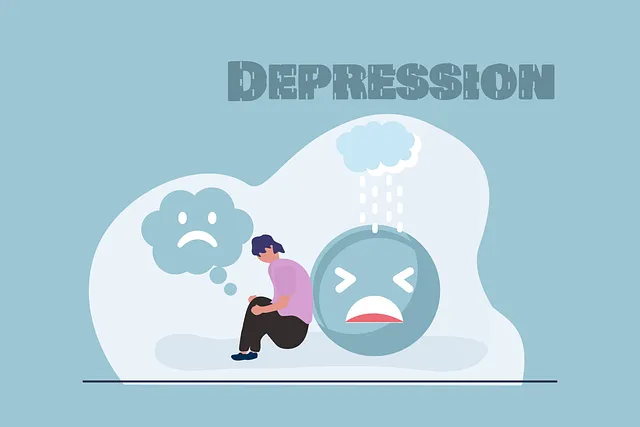The Kaiser Permanente mental health center in Parker offers comprehensive crisis intervention strategies focusing on client stabilization, safety and short-term relief. Their expert team employs tailored interventions based on comprehensive evaluations, adhering to best practices and policies. Beyond acute crisis management, the center promotes community engagement and resilience building through initiatives like Stress Management Workshops, empowering individuals with long-term mental health tools and resources. Post-crisis care ensures sustained support for recovery and recurrence prevention, setting Kaiser Permanente Mental Health Center Parker apart as a leader in mental health care.
At the Kaiser Permanente Mental Health Center in Parker, crisis intervention strategies are paramount for addressing urgent psychological needs. This comprehensive guide offers a structured approach to understanding, assessing, and managing crises effectively. From recognizing signs of distress to implementing direct interventions and supportive measures, this article equips healthcare professionals with vital tools. Additionally, it explores post-crisis care strategies aimed at fostering recovery and preventing recurrence, ensuring holistic support for patients at the Parker Mental Health Center.
- Understanding Crisis Intervention: A Brief Overview for Kaiser Permanente Mental Health Center Parker
- Assessing the Situation: Techniques and Tools for Identifying Emergency Mental Health Needs
- Implementing Effective Strategies: Direct Interventions and Supportive Measures at Kaiser Permanente
- Post-Crisis Care: Supporting Recovery and Preventing Recurrence
Understanding Crisis Intervention: A Brief Overview for Kaiser Permanente Mental Health Center Parker

At Kaiser Permanente Mental Health Center Parker, crisis intervention plays a pivotal role in providing immediate support to individuals facing severe mental health crises. This approach is designed to stabilize clients, ensure their safety, and offer short-term relief while connecting them with longer-term care options. Understanding crisis intervention involves recognizing the unique challenges faced by individuals during such traumatic events, requiring a swift yet compassionate response. The center’s dedicated team receives extensive training in various crisis intervention techniques to deliver effective support tailored to each client’s needs.
Through continuous evaluation and adherence to best practices, Kaiser Permanente Mental Health Center Parker ensures its crisis intervention strategies align with the latest mental health policies and guidelines. This commitment extends beyond clinical care; it involves actively engaging with the community through initiatives like the Community Outreach Program Implementation, fostering open dialogue on mental health issues, and advocating for inclusive Mental Health Policy Analysis and Advocacy. By integrating these approaches, the center not only addresses acute crises but also contributes to building a more supportive and resilient community environment, ultimately enhancing clients’ confidence and well-being.
Assessing the Situation: Techniques and Tools for Identifying Emergency Mental Health Needs

Assessing the situation is a critical step in crisis intervention, especially at a Kaiser Permanente mental health center in Parker. Professionals here employ various techniques and tools to identify emergency mental health needs swiftly and accurately. This includes comprehensive evaluations that consider personal history, current circumstances, and observable behaviors. By gathering detailed information through structured interviews and standardized assessment scales, the team gains insights into an individual’s emotional state, thought patterns, and potential risks.
One effective approach is utilizing risk assessment models to predict and prevent suicide or other harmful behaviors. Additionally, mental wellness professionals encourage clients to reflect on their self-care routines, ensuring they prioritize activities that promote mental health and mood management. This proactive assessment not only helps in immediate crisis intervention but also equips individuals with strategies for long-term resilience and well-being.
Implementing Effective Strategies: Direct Interventions and Supportive Measures at Kaiser Permanente

At Kaiser Permanente mental health centers, such as the one located in Parker, implementing effective crisis intervention strategies is paramount. Direct interventions play a crucial role in addressing acute situations, focusing on de-escalation techniques and immediate safety assessments. These measures ensure that individuals in distress receive prompt care, with trained professionals utilizing evidence-based practices to stabilize their conditions.
Complementing direct interventions are supportive measures designed to foster resilience building and mental illness stigma reduction efforts. Trauma support services, for instance, are offered to help individuals process and overcome past traumas, promoting long-term well-being. By combining these approaches, Kaiser Permanente aims to not only provide immediate crisis intervention but also empower individuals with coping mechanisms and resources for ongoing mental health management.
Post-Crisis Care: Supporting Recovery and Preventing Recurrence

Post-crisis care is a critical component of effective crisis intervention strategies. Following an incident, individuals often require sustained support to facilitate recovery and prevent recurrence. Kaiser Permanente mental health centers in Parker, for instance, offer comprehensive services designed to meet these needs. These centers host Stress Management Workshops aimed at equipping people with the tools needed to cope with future challenges. By fostering Mental Health Awareness, these workshops promote resilience building, enabling individuals to navigate life’s curveballs with greater equanimity.
Moreover, post-crisis care involves creating safety nets and establishing support systems that encourage ongoing well-being. This can include individual therapy sessions, peer support groups, and community outreach programs. By implementing such measures, organizations like the Kaiser Permanente mental health center Parker not only address immediate needs but also lay the groundwork for long-term resilience, ensuring individuals are better equipped to handle future crises.
In conclusion, crisis intervention strategies play a vital role in supporting individuals at the Kaiser Permanente mental health center Parker. By understanding the principles outlined in this article, healthcare professionals can effectively assess and address emergency mental health needs using direct interventions and supportive measures. Post-crisis care is essential for facilitating recovery and preventing recurrence, ensuring that patients receive comprehensive and holistic support throughout their journey towards stability and well-being.






